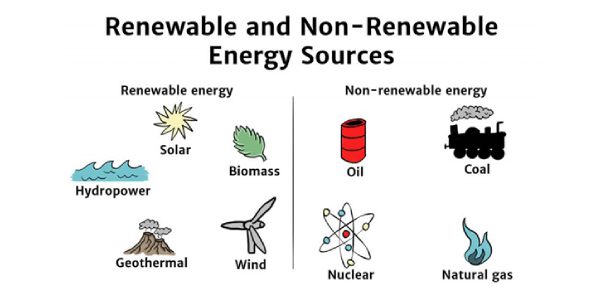Solar energy offers numerous advantages, including being a renewable and inexhaustible energy source that reduces carbon emissions and lowers electricity bills. Additionally, solar power is pollution-free, produces no greenhouse gases, and reduces dependence on foreign oil and fossil fuels.
Homes with solar panels installed may also see an increase in value and can even generate income through Solar Renewable Energy Credits (SRECs). Furthermore, solar energy provides energy independence, has a high return on investment, and is available every day of the year.
With minimal maintenance required and technological versatility, solar power proves to be a green and sustainable energy solution for a brighter and cleaner future.

Credit: www.proprofs.com
1. Renewable And Inexhaustible Energy Source
Solar energy offers numerous advantages. It is a renewable and inexhaustible energy source, reducing carbon emissions and dependence on fossil fuels. Solar power can also lower electricity bills, increase home values, and provide a return on investment. Additionally, it is a clean and pollution-free option that is available every day of the year.
Solar Energy Is A Renewable And Inexhaustible Energy Source That Provides A Sustainable Solution To Our Energy Needs.
Solar energy is an incredible resource that offers numerous advantages. One of the key advantages of solar energy is that it is a renewable and inexhaustible energy source. Unlike fossil fuels that are finite and depletable, solar energy relies on the power of the sun, which is an abundant resource that will continue to shine for billions of years to come.
The sun, our ultimate source of energy, provides us with an endless supply of sunlight that can be converted into electricity using solar panels. This means that as long as the sun keeps shining, we will have a consistent and reliable source of energy without fearing depletion or scarcity.
Solar energy harnesses the power of the sun by converting sunlight into electricity through photovoltaic (PV) or solar thermal systems. PV systems use solar cells to directly convert sunlight into electricity, while solar thermal systems capture the heat from the sun to generate electricity or heat water.
Solar Energy Is A Renewable Energy Source And Reduces Carbon Emissions.
One of the biggest advantages of solar energy is its positive impact on the environment. Solar energy is a clean, green, and low-emission source of power. When electricity is generated from solar energy, it produces no greenhouse gas emissions, which are responsible for climate change and global warming.
Compared to conventional energy sources like coal and natural gas, solar energy significantly reduces carbon emissions, helping to combat the harmful effects of climate change. By transitioning to solar energy, we can reduce our dependence on fossil fuels and contribute to a cleaner and healthier planet for future generations.

Credit: solar-city-stl.medium.com
2. Abundant Availability Of Sunlight
Abundant availability of sunlight is one of the key advantages of solar energy. The sun provides a renewable and inexhaustible source of energy that can be harnessed to generate electricity, reducing carbon emissions and dependence on fossil fuels. Additionally, solar power is available every day of the year, making it a reliable and sustainable energy option.
The Availability Of Sunlight Is Widespread, Making Solar Energy Accessible In Most Locations Around The World.
One of the significant advantages of solar energy is its abundant availability of sunlight. This renewable energy source relies on the sun’s rays to generate electricity, making it accessible in almost every corner of the globe. Whether you’re in a tropical region or a more temperate climate, the sun shines everywhere, providing a consistent and reliable source of energy.
The widespread availability of sunlight is not limited to specific geographical locations. It encompasses a broad spectrum, ensuring that solar energy can be harnessed and utilized in rural areas, urban environments, and even remote regions that are off the grid. This accessibility makes solar energy a versatile and practical solution for meeting energy demands worldwide.
Unlike other forms of renewable energy, such as wind or hydro, solar energy is not dependent on specific geographical features or weather conditions. While some locations may receive more sunlight than others, the sun is a constant presence in our lives, regardless of the time of year or the prevailing weather patterns.
Furthermore, the availability of sunlight throughout the year ensures a consistent and continuous power supply. Even on cloudy or overcast days, solar panels can still generate electricity, albeit at a slightly reduced capacity. This resilience and adaptability make solar energy a viable solution, regardless of the climate or weather conditions in a particular area.
Considering its widespread availability, solar energy has the potential to revolutionize the way we meet our energy needs. By harnessing the power of the sun, we can reduce our dependence on traditional fossil fuels and mitigate the harmful effects of carbon emissions on the environment.
3. Suitability For Battery Storage And Electricity Grid
Suitability for battery storage and the electricity grid is one of the ten advantages of solar energy. Solar power is well-suited for storing in batteries and can be easily integrated into the existing electricity grid, making it a reliable and efficient source of energy.
Solar Energy Is Well-suited For Battery Storage Systems, Allowing For Reliable Power Availability Even During Non-sunlight Hours
Solar energy is not only capable of generating electricity during daylight hours but is also well-suited for battery storage systems. This means that excess energy generated by solar panels during the day can be stored in batteries and utilized to power homes or businesses during non-sunlight hours.
This advantage of solar energy ensures a reliable power availability, even when the sun is not shining. It addresses the issue of intermittent power supply often associated with renewable energy sources. By harnessing the power of sunlight and storing it in batteries, solar energy enables a consistent and reliable energy supply.
Imagine a scenario where you have a solar panel system installed on your roof. During the day, when the sun is at its peak, the solar panels generate surplus electricity. This surplus energy need not be wasted, however, since it may be stored in batteries for later use.
During the evening or on cloudy days when there is limited sunlight, the stored energy in the batteries can be utilized to power your home. This ensures a continuous supply of electricity without any interruptions or reliance on the traditional electricity grid.
It Can Also Be Easily Integrated Into The Existing Electricity Grid Infrastructure
One of the key advantages of solar energy is its ability to seamlessly integrate into the existing electricity grid infrastructure. This means that solar power can be easily incorporated into the existing electrical networks without the need for significant modifications or upgrades.
As solar energy systems become more popular and widespread, the integration process becomes increasingly streamlined. The compatibility of solar power with the existing grid infrastructure allows for a smooth transition towards a more sustainable and renewable energy future.
When solar energy is integrated into the electricity grid, it becomes a valuable asset for both individual homes and businesses, as well as for the overall grid stability. Solar power can supplement the supply from traditional power plants, reducing the strain on the grid and enhancing its reliability.
This seamless integration also enables the possibility of energy sharing and trading. Surplus solar energy generated by households or businesses can be fed back into the grid, providing clean energy to other users and potentially earning credits or financial incentives.
In summary, solar energy’s suitability for battery storage systems and easy integration into the existing electricity grid infrastructure offers numerous advantages. It ensures reliable power availability even during non-sunlight hours and contributes to a more efficient and sustainable energy system. With solar energy, homes and businesses can become more energy-independent and play an active role in shaping a greener future.

Credit: www.sepco-solarlighting.com
4. Local Wealth And Job Creation
Local wealth and job creation are some of the advantages of solar energy. By harnessing the power of the sun, solar energy creates opportunities for economic growth and employment in local communities. Additionally, it promotes sustainability and reduces dependence on non-renewable energy sources.
The Adoption Of Solar Energy Promotes Local Economic Growth By Creating Jobs In The Installation, Maintenance, And Manufacturing Sectors.
Solar energy is not only beneficial for the environment, but it also stimulates local economies by creating a wide range of job opportunities. The adoption of solar energy presents a tremendous advantage in terms of local wealth and job creation. Let’s take a closer look at how solar energy contributes to economic growth in the installation, maintenance, and manufacturing sectors.
Solar Panel Installation Jobs
One of the main areas where job creation is seen is in solar panel installation. As solar energy becomes more popular and accessible, there is an increasing demand for skilled technicians and professionals who can install solar panels on residential, commercial, and industrial buildings. This boost in demand has led to the creation of numerous job opportunities for electricians, engineers, and construction workers. These skilled individuals play a vital role in harnessing the power of solar energy and ensuring its effective integration into the existing infrastructure.
Solar Panel Maintenance Jobs
Another area where job creation occurs is in solar panel maintenance. Like any other technological system, solar panels require regular inspections, cleaning, and occasional repairs to ensure their optimal performance. This has led to the emergence of maintenance service providers who specialize in the upkeep of solar panel systems. These professionals not only contribute to the longevity of solar panels but also provide employment opportunities for technicians and maintenance workers.
Solar Panel Manufacturing Jobs
The manufacturing sector also benefits greatly from the adoption of solar energy. The production of solar panels requires a significant amount of labor to produce various components such as solar cells, panels, wiring, and inverters. As the demand for solar panels increases, so does the need for manufacturing facilities and skilled workers to produce these components. This leads to the creation of jobs in manufacturing plants and factories, further enhancing the overall local wealth and employment opportunities.
In summary, the adoption of solar energy not only contributes to a sustainable and clean future but also provides a significant boost to the local economy. Through the creation of jobs in the installation, maintenance, and manufacturing sectors, solar energy stimulates economic growth, enhances local wealth, and ensures a brighter future for both the environment and society as a whole.

Credit: www.rtinsights.com
5. Technological Versatility
Technological versatility is one of the advantages of solar energy. Solar technology can be used in various applications, such as powering homes, businesses, and even vehicles, making it a versatile and adaptable source of energy.
Solar energy can be harnessed through various technologies such as solar panels, solar thermal systems, and concentrated solar power, providing flexibility in implementation. This technological versatility is one of the key advantages of solar energy.
Solar Panels
Solar panels are the most common technology used to capture solar energy. They consist of photovoltaic cells that convert sunlight directly into electric energy. These panels can be installed on rooftops, buildings, or even integrated into windows, providing a versatile option for generating clean and sustainable electricity.
Solar Thermal Systems
Solar thermal systems utilize the heat from the sun to generate electricity, heat water, or provide space heating. This technology is widely used in hot water systems, where solar collectors capture the sun’s energy to heat water for domestic or commercial use. It can also be used in industrial processes that require high-temperature heat.
Concentrated Solar Power (csp)
Concentrated Solar Power (CSP) is another method that captures solar energy. CSP uses mirrors to concentrate sunlight onto a receiver, which then converts it into heat. The heat can be used to produce electricity by driving a turbine or stored for later use. This technology excels at producing massive amounts of electricity.
Flexibility In Implementation
The range of technologies available for harnessing solar energy ensures flexibility in implementation. Solar panels can be installed on various surfaces, making it possible to generate electricity in both residential and commercial settings. Solar thermal systems can be tailored to meet specific heating needs, whether for domestic use or industrial applications. CSP offers a scalable solution for utility-scale power generation. This versatility allows solar energy systems to be adapted to different geographical locations, energy demands, and infrastructural requirements.
In summary, the technological versatility of solar energy, encompassing solar panels, solar thermal systems, and concentrated solar power, provides flexibility in harnessing this renewable resource. This adaptability allows solar energy to be widely implemented on different scales and in various applications, contributing to a sustainable and clean energy future.
6. Low Maintenance Requirements
With low maintenance requirements, solar energy is an advantageous option for sustainable power. It is a renewable source that reduces carbon emissions, reduces dependence on fossil fuels, and has the potential to save money in the long run.
Solar energy systems require minimal maintenance, reducing the associated costs and efforts compared to other energy sources. Unlike traditional energy sources, solar panels do not have moving parts that can wear out or break. As a result, the maintenance requirements for solar energy systems are incredibly low, making them highly reliable and cost-effective over time.
Here are some key advantages of low maintenance requirements for solar energy:
- Cost-effectiveness: Solar energy systems are known for their long lifespan, often lasting more than 25 years. With minimal maintenance needs, homeowners and businesses can save significantly on repair and replacement costs.
- Time-saving: Due to the lack of moving parts, solar panels do not require regular servicing or inspections. This saves time for both homeowners and solar installers.
- Reduced downtime: Solar panels are designed to withstand various weather conditions, including rain, wind, and snow. Their durability ensures that they continue to generate electricity even during adverse weather, minimizing downtime.
- Easy cleaning: Cleaning solar panels is a simple task that can be performed by the homeowner. Regular cleaning, usually with a hose or soft brush, ensures optimal performance and maximizes energy production.
- Less risk of failure: With fewer components and moving parts, the risk of mechanical failure in solar energy systems is significantly reduced. This translates to fewer disruptions and a more reliable source of electricity.
- Savings on maintenance costs: Since solar systems require minimal maintenance, homeowners and businesses can save on maintenance costs that would otherwise be incurred with traditional energy sources, such as servicing generators or repairing complex machinery.
By opting for solar energy, individuals and organizations can enjoy the benefits of low maintenance requirements. With reduced costs, time-saving advantages, and increased reliability, solar power proves to be an excellent investment for a sustainable and hassle-free future.

Credit: www.ecomena.org
7. Environmentally Friendly
Solar energy is environmentally friendly, making it a sustainable and renewable energy source. It reduces carbon emissions, helps in reducing reliance on fossil fuels, and contributes to a greener planet.
Solar Energy Is A Clean And Green Source Of Energy
One of the remarkable advantages of solar energy is that it is an environmentally friendly source of power. Solar energy is a clean and green energy source that does not emit greenhouse gases or contribute to air pollution. Unlike fossil fuels, solar power does not release any harmful byproducts into the atmosphere. This makes solar energy a sustainable and renewable alternative to traditional sources of electricity.
Solar energy is a renewable energy source and reduces carbon emissions. By harnessing the power of the sun, we can significantly reduce our dependence on fossil fuels, which are responsible for the majority of greenhouse gas emissions. When properly installed, solar panels do not release any harmful substances into the atmosphere. It’s a clean and green energy solution that helps combat climate change and preserves the quality of our air.
Moreover, solar energy is a clean energy source that is available every day of the year, even on cloudy days. While the amount of sunlight may vary depending on weather conditions, solar panels can still produce power even in overcast skies. This means that solar energy can still generate electricity during harsh weather conditions, making it a reliable source of energy for both residential and commercial applications.
Not only does solar energy reduce carbon emissions and air pollution, but it also offers a myriad of other advantages. Solar power can reduce your home’s electricity bill, providing financial savings for homeowners. In fact, homes with solar panels installed may improve home value, which can be an added benefit for property owners. Additionally, solar power can even get you money back through Solar Renewable Energy Credits (SRECs), making it a financially advantageous investment.
In summary, solar energy is a clean and green source of power that offers numerous benefits. It is a renewable energy source that helps reduce carbon emissions and combat climate change. Solar power is reliable, even on cloudy days, and can provide financial savings to homeowners. By harnessing the power of the sun, we can create a sustainable future for generations to come.
8. Reduction In Energy Costs
One of the advantages of solar energy is the reduction in energy costs. By harnessing the power of the sun, homeowners can significantly decrease their electricity bills and save money in the long run. Additionally, solar energy is a renewable source, which means it is environmentally friendly and reduces carbon emissions.
Installing solar panels can significantly reduce electricity bills, leading to long-term energy cost savings. By harnessing the power of the sun, you can generate your own electricity, reducing your reliance on traditional energy sources. This not only helps the environment but also provides financial benefits for homeowners and businesses alike.
When it comes to electricity bills, they often make up a significant portion of monthly expenses. By investing in solar energy, you can take control of your energy usage and cut down on these costs. Solar panels generate electricity from the sun’s rays, meaning that you can produce your own clean and renewable energy without relying on fossil fuels. This can result in substantial savings on your monthly bills, freeing up funds for other important expenses.
One of the major advantages of solar energy is its ability to generate electricity even on cloudy days. While solar panels perform the best in direct sunlight, they can still produce power when the weather is overcast. This means that you can continue to enjoy the benefits of reduced energy costs, even during periods of less sunshine.
Moreover, solar energy offers an excellent return on investment. While the initial installation costs may seem high, you will start seeing savings on your energy bills almost immediately. Over time, the amount of money saved on electricity can outweigh the initial investment, resulting in long-term cost savings. Additionally, some states and municipalities offer incentives, such as tax credits or rebates, that can further offset the installation costs, making solar energy even more financially attractive.
By installing solar panels, you are not only reducing your dependence on the grid but also protecting yourself from rising energy prices. The cost of traditional energy sources fluctuates due to various factors such as geopolitical tensions, economic instability, and natural disasters. With solar energy, you have control over your own power generation, minimizing the impact of these external factors on your electricity bills.
In conclusion, the reduction in energy costs is a significant advantage of solar energy. By installing solar panels, you can take control of your energy usage, reduce your reliance on traditional energy sources, and enjoy long-term cost savings. Whether you are a homeowner or a business owner, investing in solar energy can provide both financial and environmental benefits. So, why not harness the power of the sun and start saving on your energy bills today!

Credit: www.mashvisor.com
9. Increase In Property Value
Increase in property value is one of the advantages of solar energy. Installing solar panels can significantly boost the market value of your property, making it more attractive to potential buyers.
Homes Equipped With Solar Panels Tend To Have Higher Property Values, Providing Additional Financial Benefits To Homeowners.
Solar energy is not only beneficial for reducing carbon emissions and lowering electricity bills, but it can also have a positive impact on the value of your property. Homes equipped with solar panels tend to have higher property values compared to those without solar installations. This is because solar panels not only provide the homeowner with clean and renewable energy but also offer long-term financial benefits.
Here are some advantages of solar energy relating to property values:
- Increased Resale Value: Homes with solar panels installed may improve home value. When selling a home with solar panels, potential buyers see them as major assets. They view the solar panels as being an attractive feature that can provide them with long-term energy savings. This increased appeal can result in a higher resale price for your home.
- Energy Cost Savings: Properties with solar panels can significantly reduce electricity bills. The potential savings accumulated over the years with solar energy make owning a solar-powered home desirable to potential buyers. This translates to higher property values as homeowners can market their properties as energy-efficient and cost-effective.
- Long-Term Financial Benefits: Investing in solar panels is a long-term investment that generates a return on investment (ROI). Unlike paying utility bills, homeowners with solar panels can enjoy the financial benefits of owning their energy source. This financial independence adds value to the property and is an attractive feature to potential buyers.
Solar energy not only benefits individuals but also contributes to reducing the overall carbon footprint. By installing solar panels, homeowners can actively participate in the transition towards cleaner energy sources.

10. Energy Independence
Solar energy offers numerous advantages, including energy independence, as it is a renewable and inexhaustible source that reduces carbon emissions. It can also lower electricity bills, provide monetary benefits through Solar Renewable Energy Credits (SRECs), and increase the value of homes with solar panels installed.
Furthermore, solar power is pollution-free and reduces dependence on foreign oil and fossil fuels, making it a sustainable and environmentally-friendly option.
By utilizing solar energy, individuals and communities can reduce their reliance on traditional energy sources, achieving greater energy independence. This is a significant advantage of solar power, as it allows us to break free from the limitations and uncertainties associated with fossil fuels and the grid. Let’s explore some of the key benefits that come with embracing solar energy.
Renewable And Inexhaustible
Solar energy is a renewable energy source, meaning it is naturally replenished and will never run out. Unlike fossil fuels, solar power is derived from the sun, which continues to shine day after day, providing us with an abundant and inexhaustible source of energy. By harnessing this sustainable power, we can create a cleaner and more sustainable future.
Environmental Friendliness
One of the most compelling advantages of solar energy is its minimal impact on the environment. Solar power is low-emission and does not produce harmful greenhouse gases, such as carbon dioxide, that contribute to climate change. By reducing our reliance on fossil fuels, we can significantly reduce carbon emissions and decrease our ecological footprint.
Cost Savings
Solar energy can help reduce your home’s electricity bill, providing substantial cost savings over time. By generating your own electricity through solar panels, you can offset the need to purchase electricity from the grid. Additionally, homes with solar panels installed may improve their property value, making solar energy a smart investment for the long term.
Energy Security
As the global demand for energy continues to rise, achieving energy security becomes increasingly crucial. Solar power provides a reliable and constant source of energy, regardless of geopolitical factors or fluctuating oil prices. By investing in solar energy, individuals and communities can rely on their own power generation and achieve greater energy security.
Job Creation
The solar business is expanding quickly, which is good news since it means more jobs will be created.
From the manufacturing and installation of solar panels to research and development of solar technologies, solar energy generates employment across various sectors. By embracing solar power, we can contribute to the growth of green jobs and stimulate economic development in our communities.
Minimal Maintenance
Solar energy systems require minimal maintenance compared to other forms of energy generation. Once installed, solar panels typically have a lifespan of 25 to 30 years, with little to no maintenance required. This means less time and effort spent on upkeep, allowing you to enjoy the benefits of solar energy without significant hassle or additional costs.
Technological Advancements
The field of solar energy has seen remarkable technological advancements in recent years. From more efficient solar panels to energy storage solutions, these advancements contribute to the affordability and effectiveness of solar power systems. As technology continues to evolve, so do the benefits and possibilities of solar energy.
Energy Diversity
By embracing solar energy, we can diversify our energy sources and reduce our dependence on foreign oil and fossil fuels. This diversification helps to mitigate the risks associated with relying on a single energy source, enhancing the resilience and stability of our energy systems.
Community Empowerment
Using solar power, neighbourhoods may stop relying on utility companies and start generating their own electricity. With solar panels installed on rooftops and shared solar projects, individuals and communities can generate their own clean, renewable energy and reduce their carbon footprint. This empowerment fosters a sense of ownership and responsibility towards sustainable energy practices.
Accessible And Scalable
Solar energy is accessible to individuals and communities worldwide, as sunlight is available almost everywhere. Whether you live in a remote area or a densely populated city, solar power can be harnessed to meet your energy needs. Additionally, solar systems can be easily scaled up or down depending on energy requirements, making it a flexible and adaptable energy solution.
Embracing solar energy offers numerous advantages, from reducing carbon emissions to achieving energy independence. By harnessing the power of the sun, we can create a more sustainable and resilient future for ourselves and future generations.

Credit: www.youtube.com
Frequently Asked Questions For What Are 10
What Are 5 Benefits Of Solar Energy?
The 5 benefits of solar energy are: 1. Renewable and inexhaustible energy source that reduces carbon emissions. 2. Reduces electricity bills and can even earn money through solar renewable energy credits. 3. Increases home value when solar panels are installed.
4. Pollution-free and reduces dependence on foreign oil and fossil fuels. 5. Provides clean power every day, even on cloudy days.
What Are The 2 Biggest Advantages Of Using Solar Energy?
The two biggest advantages of using solar energy are: 1. It is a renewable energy source that reduces carbon emissions. 2. It can reduce your home’s electricity bill and even earn you money through Solar Renewable Energy Credits (SRECs).
What Are 4 Advantages Of Solar?
Solar energy is renewable and reduces carbon emissions. It can lower your electricity bill and earn you money through Solar Renewable Energy Credits (SRECs). The installation of solar panels has been shown to raise the value of a property.
What Is A Major Advantage Of Solar Power?
A major advantage of solar power is that it is a renewable energy source, meaning it can last forever. It is also clean and pollution-free since it doesn’t require mining fossil fuels.
Conclusion
To sum it up, solar energy offers numerous advantages that make it a compelling choice for powering our homes and businesses. It is a renewable and inexhaustible energy source that reduces carbon emissions and dependence on fossil fuels. Solar power can significantly reduce electricity bills and even earn homeowners money through Solar Renewable Energy Credits.
Additionally, homes with solar panels installed may see an increase in property value. With minimal maintenance requirements, solar energy is a clean and green solution for a sustainable future.

